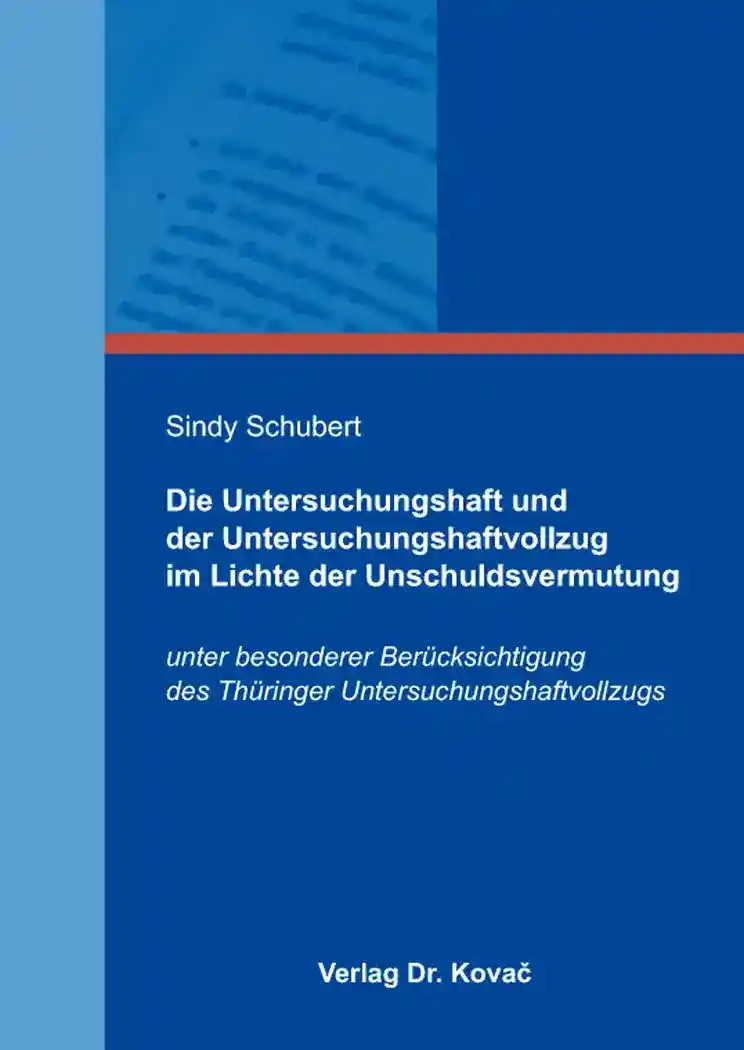Sindy SchubertDie Untersuchungshaft und der Untersuchungshaftvollzug im Lichte der Unschuldsvermutung
unter besonderer Berücksichtigung des Thüringer Untersuchungshaftvollzugs
Schriften zum Strafprozessrecht, volume 15
Hamburg 2016, 496 pages
ISBN 978-3-8300-9237-7 (print) |ISBN 978-3-339-09237-3 (eBook)
About this book deutschenglish
This study, by analyzing domestic and international regulations, shows to what extent there is a conflict between pre-trial detention and the presumption of innocence, and it seeks to offer approaches to solve problems arising therefrom. Pre-trial detention is used during preliminary proceedings in criminal prosecution. The presumption of innocence requires that a suspect be regarded innocent until his or her guilt is proved. Based on this premise, how can detention of a suspect during preliminary proceedings be justified? With a view on those preconditions this study examines requirements of material justice for an arrest warrant, and also offers solutions which will allow further shaping of the presumption of innocence. The rights of the accused during criminal proceedings are thereby strengthened. Thuringia has enacted the new Thüringer Justizvollzugsgesetzbuch in January 2014. With this there is a homogenous set of rules for all correctional proceedings. It was particularly important during the analysis to find out how and in which way the presumption of innocence works for the accused in reality. Thuringia has three correctional facilities in which pre-trial detention and other correctional proceedings are carried out. The house rules of these facilities can offer an insight in the actual treatment of the different types of detention. In addition to the focus on domestic law, the study tries to further reference rules contained in European Law and Public International Law. The European Convention for the Protection of Human Rights and Fundamental Freedoms contains the presumption of innocence as a human right as well as in its Article 5 pre-trial detention. Furthermore, there are constant European attempts to strengthen the presumption of innocence, and for correctional proceedings there are the European Prison Rules (EPÄR). Moreover, international control through visits of the European Committee of the Prevention of Torture and Inhuman or Degrading Treatment or Punishment (CPT) and its recommendations and reports were taken into account by the study.
Keywords
EMRKEntschädigungGrünbuch zur UnschuldsvermutungHaftanstaltHaftgründeTatverdachtThüringenUnschuldsvermutungUntersuchungshaftUntersuchungshaftvollzugVerdachtsberichterstattungIhr Werk im Verlag Dr. Kovač

Möchten Sie Ihre wissenschaftliche Arbeit publizieren? Erfahren Sie mehr über unsere günstigen Konditionen und unseren Service für Autorinnen und Autoren.
